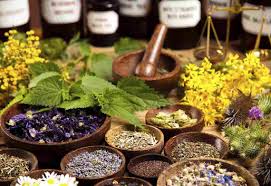In a world where pills often take the spotlight, it’s important not to overlook the natural healing power of herbal remedies. These ancient treasures have been used for centuries and can play a crucial role in maintaining healthy haemodynamics, which is the circulation of blood throughout the body.
Haemodynamics is all about how blood flows through our blood vessels, delivering essential oxygen and nutrients to your cells while removing waste products. When this process runs smoothly, your heart and blood vessels work in harmony, reducing the risk of cardiovascular issues like high blood pressure and heart disease.
Herbal remedies offer a holistic approach to supporting healthy haemodynamics. They can help improve blood flow, reduce inflammation, and support overall cardiovascular health.
Herbs That Are Good for Haemodynamics
- Hawthorn
Hawthorn has been used for centuries to support healthy blood pressure levels and improve circulation.
- Garlic
Beyond its culinary uses, garlic has been prized for its medicinal properties for ages. Garlic, with its active compound allicin, may help maintain healthy cholesterol levels and enhance blood flow, promoting healthy haemodynamics.
- Ginger
Ginger is yet another herb that packs a punch when it comes to heart health. Not only does it possess anti-inflammatory properties, but it can also improve circulation by dilating blood vessels. Additionally, ginger has been shown to reduce blood clotting, further safeguarding against cardiovascular issues.
- Lavender
While often associated with relaxation, lavender can also benefit haemodynamics. Its ability to reduce stress and anxiety can indirectly support heart health by lowering blood pressure and heart rate.
- Turmeric
Turmeric with its powerful compound curcumin, has anti-inflammatory and antioxidant properties that support blood vessel health.
- Green Tea
Rich in antioxidants called catechins, green tea can improve endothelial function, which is crucial for healthy blood vessel function. By enhancing endothelial health, green tea supports optimal haemodynamics and reduces the risk of cardiovascular disease.
- Ginkgo Biloba
Ginkgo biloba, known for its antioxidant properties, can improve blood vessel flexibility and cognitive function.
- Cayenne Pepper
Cayenne pepper, containing capsaicin, may help maintain healthy blood pressure levels and prevent blood clot formation.
Incorporating these herbal remedies into your daily routine can be as simple as brewing a cup of herbal tea, adding fresh herbs to your meals, or taking herbal supplements. However, it’s essential to remember that while herbal remedies can be beneficial, they should complement, not replace, conventional medical treatments. Always consult with a healthcare professional before starting any new herbal regimen, especially if you have existing health conditions or are taking medications.
In conclusion, the benefits of herbal remedies in supporting healthy haemodynamics are vast and well-documented. From improving blood flow and lowering blood pressure to reducing inflammation and promoting relaxation, these natural wonders offer a holistic approach to heart health. So why not harness the power of herbs and give your heart the support it deserves? Your body will thank you for it.

